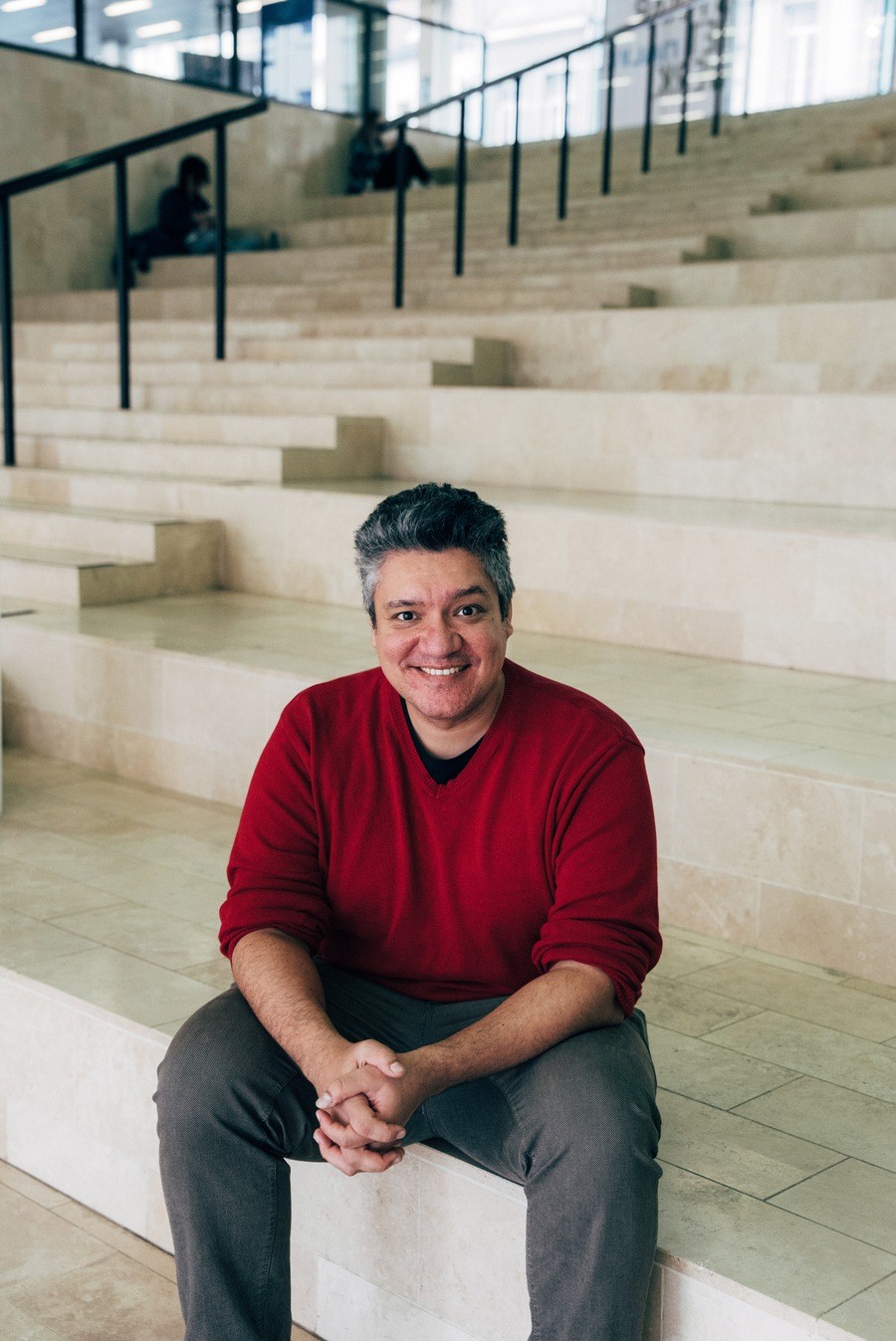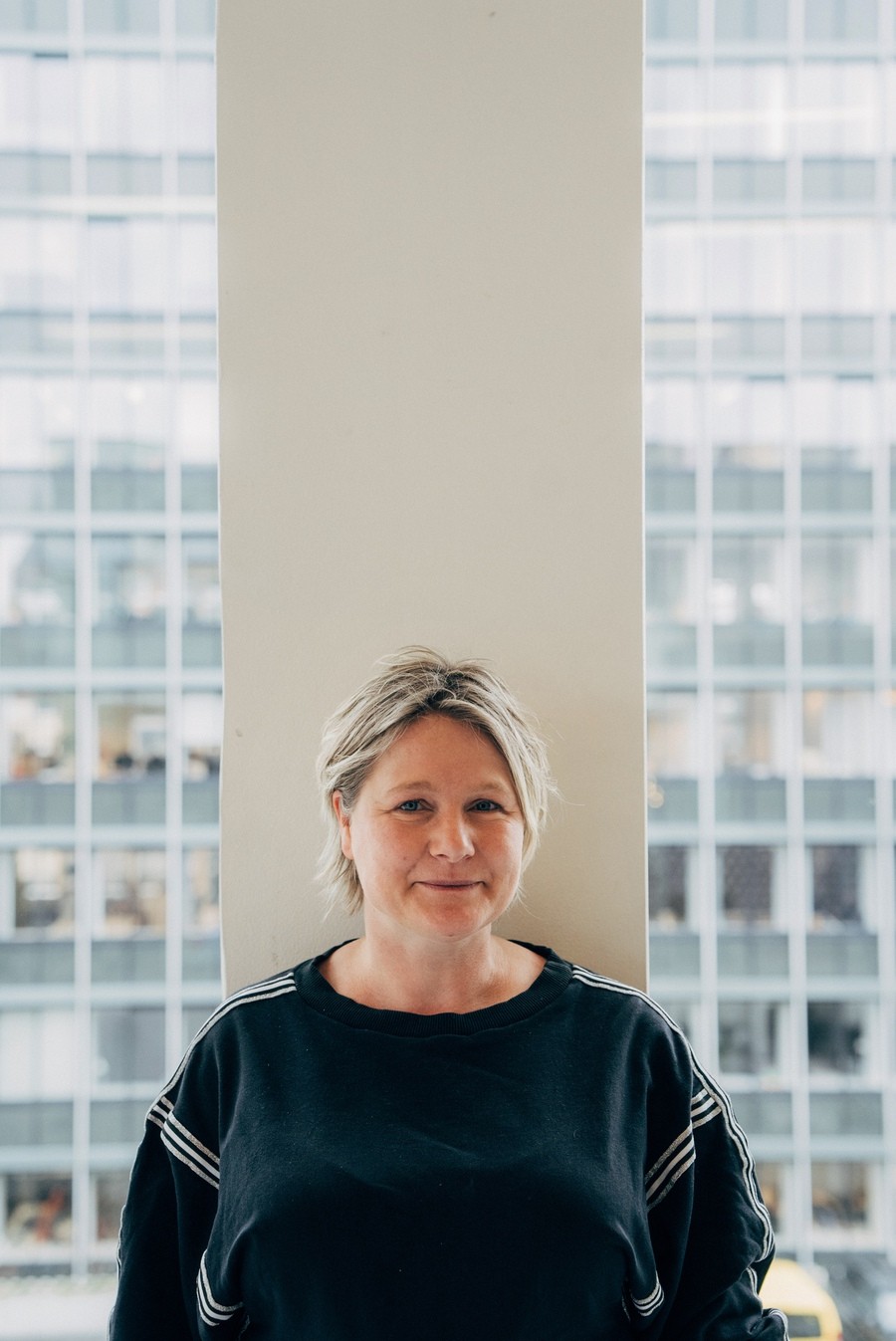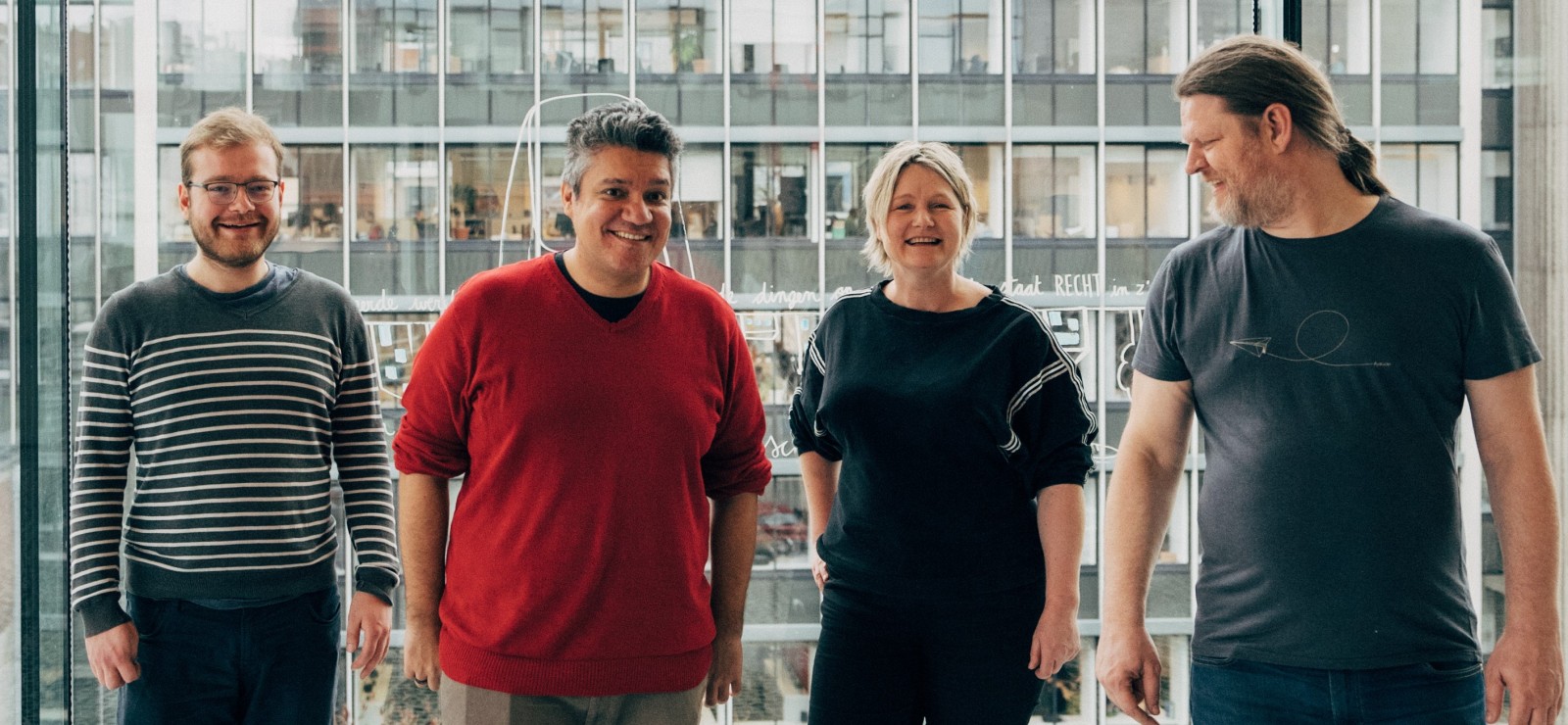Ensuring that every child learns how to code, that is the common goal of several UGent researchers and the educational platform CodeCosmos. They developed a digital co-teacher together for the popular programming language Scratch. A world-first because this is the first tool that can automatically evaluate Scratch exercises. “Coach CoDi goes light years beyond all other feedback tools”, says UGent professor Christophe Scholliers
Just before the Covid-19 pandemic broke out in these parts, CodeCosmos founder Katelijne Duerinck first came into contact with UGent researchers Christophe Scholliers, Peter Dawyndt and Niko Strijbol at an edtech event in 2020. “I immediately felt we shared a common goal: making it easier for children to learn how to code. That is how Coach CoDi came into being.”
Three years later a feedback tool has been developed that has already been deployed in some fifty Belgian schools. However, the tool’s potential stretches way beyond Belgian borders. More than 100 million children are using the popular programming language Scratch, each and every one a potential Coach CoDi user.
For starters, what does Coach CoDi do exactly?
Christophe Scholliers: “Simply put it is a feedback tool for one of the most popular block-based programming languages worldwide, Scratch. The tool provides automatic feedback on the exercises children perform."
"And you can interpret this in the broadest sense. For instance, when a child is stuck in the middle of an exercise, the tool can specifically indicate which parts of the exercise are already correct and which parts still need some work."
"Coach CoDi also gives tips to put children on the right track. Current programs are not integrated in Scratch and therefore offer only general feedback. Coach CoDi goes much further.”
Video - Coach CoDi to the rescue
Why is this important?
Katelijne Duerinck: “Because we do not want children to become discouraged. If a child is willing to do exercises only to get a red screen because of a minor mistake, you are discouraging this child. We want to keep children from becoming disheartened or thinking they are not intelligent enough to code. It is crucial for children to enjoy themselves while coding. Frustrations can run high sometimes, particularly in a class environment. Sometimes pupils have to wait a long time to get help.”
So how does Coach CoDi provide feedback?
Katelijne: “If the child has solved the exercise in a way that may not match with what was taught, but that works nevertheless, Coach CoDi will still give positive feedback. There are always more than one or two solutions to a problem. It’s like a French lesson: there are at least five ways to ask for directions in French. Helping children find their own way makes them self-reliant and curious to keep learning.”
And a teacher can’t do that?
Christophe: “We shouldn’t close our eyes to reality. A single teacher often has to deal with a class of up to 25 pupils. If each of them has just one question and you want to answer every one, the period is over. Coach CoDi provides pupils with instant feedback, allowing them to become more self-reliant in working on their programming exercises in Scratch. This enables teachers to focus on their core task: getting pupils to think computationally. Training them to approach problems in such a way that computers are able to solve them.”

Does this change the teacher’s role?
Katelijne: “Absolutely. Take the spell checker in Word, for instance. It’s a useful tool but it can’t replace Dutch lessons. By making the pupils more self-reliant we can accelerate the learning process. These time gains make it feasible for teachers to teach computational thinking and they can focus on those children who need extra support.
Christophe: “I am very pleased that computational thinking was recently added to the curriculum because it’s clear that we have some catching up to do in Belgium in this regard. At information days for prospective students, I still often hear odd statements such as: ’My son loves gaming so computer science should be right up his alley’. The curriculum could go a bit further for my liking but creating more awareness is a good first step.”
What role does UGent play in the project?
Christophe: “We wrote the code that enables Coach CoDi to automatically check the solutions to Scratch exercises. Code Cosmos integrated that code in the learning platform so pupils can start using it right away. If children submit other coding solutions that are correct then we adapt the code.
Why is this collaboration so special to you?
Christophe: “Universities often create prototypes. These prototypes are only finished for eighty percent because they are only designed to illustrate a concept. The final twenty percent - preparing them for actual use - is missing. Together with CodeCosmos we want to take that final step.”
Katelijne: “That is why our project is so unique. It’s not limited to research but it immediately moves on to practice. We boast the network and the long years of pedagogical experience to immediately introduce the tool in the classroom. This interplay between researchers, developers and pedagogues is exceptional.”
Christophe: “That’s right, that is where the twenty percent difference with other prototypes is situated. We work with the pedagogues of CodeCosmos. They create exercises custom-tailored to an educational environment, based on the basic concepts of computational thinking that are part of virtually every curriculum worldwide.

What are the next steps for Coach CoDi?
Katelijne: “We are currently active in some fifty Belgian schools, mainly in secondary schools, but we’ve already developed a variant for primary education. We are now hoping to take the next steps and expand abroad.”
Christophe: “We have to dare to think big. Right now more than 100 million children worldwide are using Scratch. Our tool has the potential to help each and every one of them. Consequently, we are currently in discussions with the developers of Scratch itself.”
What do you hope to achieve with Coach CoDi?
Christophe: “I want children to experience the pleasure of coding as much as possible. A child that is very good at coding is a creative thinker. We need such profiles to tackle the challenges of the future.”
Katelijne: “We found each other in that mission.”
Ghent University is not new to developing feedback tools to teach students to code. Dodona, for instance, is a tool geared to university students developed by Peter Dawyndt and Bart Mesuere.
Read also
Can I post this online? Five tips to safely share your children’s holiday photos
Adorable baby photos, your toddler's first day of school or this summer’s holiday pictures with the children. Parents love to share photos of their children. But sharing those photos online is not without risk. Doctoral researcher Elisabeth Van den Abeele offers tips for parents on how best to go about it.
Six tips for healthy screen time (for children & adolescents)
Our children are growing up in a world filled with screens. How much should we worry about this? Professor Mariek Vanden Abeele (imec-mict-UGent) analyses the benefits and drawbacks of digital connectedness among young people, and tells us how we can ensure healthy screen time.
”There are countless ways to be a good family”
Broadening our view of the world is what Ann Buysse wants to achieve with her book 'Zoveel tussen ons’ (So much between us). She is a professor and dean of the Faculty of Psychology and Educational Sciences. "I have never been so unsure about anything before. Especially because it has not become a purely academic book. I also put a lot of myself into it."
Ghent University to train the language technologists of the future
At the Faculty of Arts and Philosophy, starting next academic year, you can opt for an educational track to become a language technologist. A sought-after profile on the job market, so it seems.




